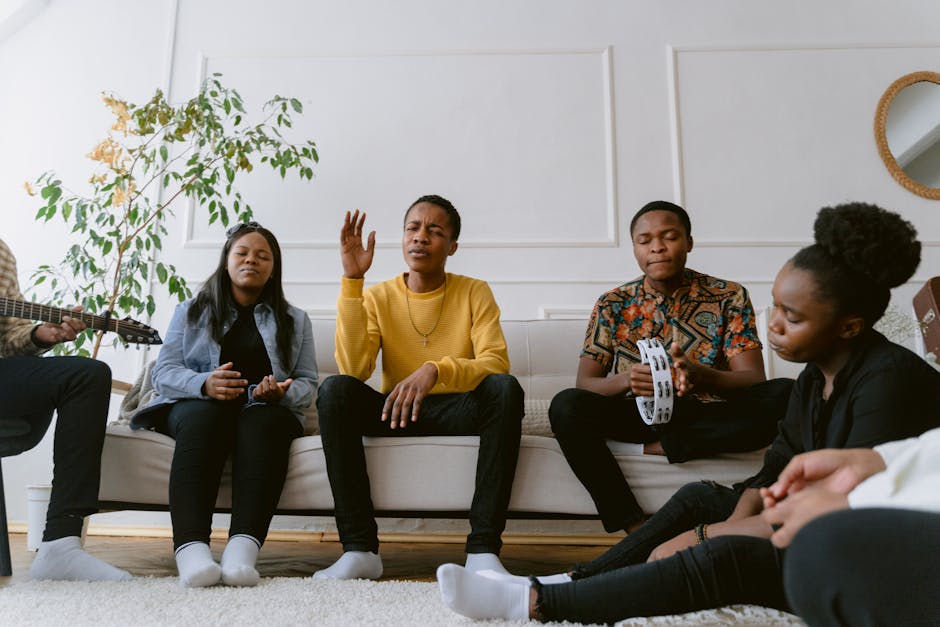Music transcends its purely auditory nature. It weaves a powerful tapestry within social gatherings, acting as a catalyst for connection, a common language for expression, and a crucial element shaping the atmosphere and dynamics of these events. From intimate gatherings to grand celebrations, music plays a multifaceted role, influencing everything from the flow of conversation to the overall experience.
A significant function of music in social settings is its ability to establish a shared emotional context. A particular genre, tempo, or melody can instantly evoke specific feelings and moods. A jaunty polka, for instance, may incite laughter and lightheartedness, while a somber ballad can create a moment of introspection and shared sentiment. This shared emotional response fosters a sense of unity and camaraderie, making individuals feel more connected to those surrounding them. The music acts as a silent conductor, guiding the emotional current of the gathering.
Furthermore, music serves as a potent social lubricant. The rhythm and beat of a song can naturally encourage movement, whether it’s a simple swaying to the music or a vibrant dance floor. This physical interaction facilitates a more relaxed and approachable atmosphere, breaking down barriers between strangers and fostering spontaneous connections. A dynamic, lively band performing popular tunes can successfully draw people onto the dance floor, providing the impetus for mingling and interaction. Conversely, a mellow background track can encourage more intimate conversation and quieter socializing, supporting moments of deeper connection.
Beyond the immediate emotional and social impact, music acts as a crucial determinant in the overall success and character of a gathering. The chosen musical selections contribute profoundly to the atmosphere. A high-energy rock concert will differ drastically from a quiet acoustic performance at a dinner party. The specific choices, whether curated by DJs, live bands, or individual hosts, directly shape the ambience and consequently, the participants’ experience. Music acts as a powerful narrative tool; a carefully chosen playlist can reinforce the theme or intention of the gathering, from a sophisticated cocktail party to a celebratory birthday bash.
The role of music in social gatherings is often intertwined with cultural and societal norms. In many societies, music accompanies specific celebrations and traditions. The vibrant rhythm and melodies of a traditional wedding ceremony, for example, reflect cultural values and beliefs passed down through generations. The music evokes specific emotions and expectations, further solidifying the event’s meaning and significance for those present. Similarly, communal singing during religious services strengthens feelings of belonging and shared purpose within faith-based communities.
The influence of music extends beyond the immediate surroundings. It contributes to memory creation. A memorable song, played at a significant milestone like a wedding or graduation, often gets permanently etched into the minds of those present, becoming a constant reminder of the occasion. These musical memories serve as potent emotional anchors, allowing individuals to re-experience the joy, sentiment, or excitement associated with those social moments.
Music also functions as a dynamic force that can alter and shape the flow of conversation. The rhythmic pulses and melodic patterns of the music can contribute to the tone of the interaction, whether high-spirited or introspective. A rapid-paced song might encourage quick-fire banter, whereas a softer song could inspire more reflective and deeper conversations. Consequently, the music subtly guides the tempo of the social interaction.
The choice of music, even in a seemingly subtle way, can influence participant behaviour and ultimately shape the entire outcome of a social occasion. The social dynamics of any gathering are substantially influenced by the music. A carefully curated playlist, with music that reflects the gathering’s tone and aligns with the audience’s preferences, can steer interaction, support feelings of connection, and facilitate a more enjoyable experience for all involved.
Importantly, music in social settings transcends mere entertainment. It can be a powerful tool for building community and fostering a sense of belonging. Consider the impact of shared musical experiences in community events, festivals, and religious ceremonies. These events, often centered around a collective enjoyment of music, allow for interaction and build a sense of shared identity and community.
Contemporary music also plays a crucial role in social gatherings. Music streaming services, for instance, have democratized access to a vast array of genres and artists. This has the effect of making it easier for hosts to curate playlists that reflect the unique characteristics of their social gatherings. The ease of access to diverse musical offerings allows gatherings to encompass a wider range of tastes and preferences, creating more inclusive and engaging atmospheres.
Ultimately, music’s significance in social gatherings is multi-layered and profoundly influential. From setting the mood and energizing interactions to evoking shared emotions and facilitating a lasting sense of connection, music acts as a silent conductor orchestrating the emotional currents and social dynamics of any gathering. It is a fundamental aspect of human interaction, shaping the ambiance, fostering bonds, and leaving lasting impressions. The symphony of sounds, therefore, plays a pivotal role in the success and emotional richness of social moments.
